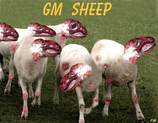
The second most important vote this November 2012 as initially reported in our September 27, 2012 blog, was decided by Californians with a resounding "No". That was the outcome of Proposition 37, on whether or not to pass a law requiring that genetically modified foods be labelled as such, in support of the consumer's right to know what is in our food. Had California passed this groundbreaking law safeguarding the health of consumers, it is believed that other states would have followed suit, eventually making it a possible federal law.
Although many find it hard to believe that such a law requiring labeling of genetically modified foods would be voted down by the people, the result appears to be mostly a testimony to the power of money. Forty six million dollars were spent in the opposition's allegedly fraudulent and deceptive campaign, funded by Monsanto, DuPont, Coca Cola, PepsiCo, General Mills and other food and pesticide companies. The alleged fraud and deception was claimed to have been so extensive that it is now the subject of a criminal complaint filed with the FBI.
Proponents of Proposition 37 maintain that despite the defeat, they have achieved a victory in heightened public awareness. They further purport, that this is just the beginning of their campaign and that efforts will continue from state to state until a law is passed.
Without a label law in effect, it is difficult to know whether or not you are buying foods that have been genetically modified. It is claimed that genetic modification is within over 80 percent of the food currently available to consumers. Anything that contains corn, soybean, canola, cottonseed or any derivative therefrom, is all but certain to contain some form of genetic modification. That includes but is not limited to, all processed foods and yes even high fructose corn syrup. Contrary to what the commercials on television would have you believe when they claim that, "sugar is sugar, your body doesn't know the difference", the clinical and empirical evidence tells us otherwise.
As it stands now, the only reliable way to know that the food you are buying is not genetically modified, is if it is certified GMO free or if it is certified organic. If you believe that you should have the right to know what is in your food so as to protect your health and the health of your family, then voice your opinion to your grocer on a regular and continuous basis. If more and more people demand to have the right to choose between healthy and unhealthy foods, the economics of supply and demand will apply with the laws of our states to follow.
Long Island Lawyer
Paul A. Lauto, Esq.


 RSS Feed
RSS Feed

